
The Wild, the Innocent & the E Street Shuffle is the second studio album by the American rock singer-songwriter Bruce Springsteen. It was recorded by Springsteen with the E Street Band at 914 Sound Studios, Blauvelt, New York, and released on November 5, 1973, by Columbia Records. It includes the song "Rosalita ", the band's most-used set-closing song through 1985.
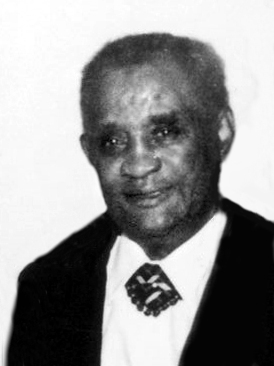
Eurreal Wilford "Little Brother" Montgomery was an American jazz, boogie-woogie and blues pianist and singer.

George "Buddy" Guy is an American blues guitarist and singer. He is an exponent of Chicago blues who has influenced generations of guitarists including Eric Clapton, Jimi Hendrix, Jimmy Page, Keith Richards, Stevie Ray Vaughan, Jeff Beck, Gary Clark Jr. and John Mayer. In the 1960s, Guy played with Muddy Waters as a session guitarist at Chess Records and began a musical partnership with blues harp virtuoso Junior Wells.

Clide Vernon "Sonny" Landreth is an American blues musician from southwest Louisiana who is especially known as a slide guitar player. He was born in Canton, Mississippi, and settled in Lafayette, Louisiana. He lives in Breaux Bridge, Louisiana.
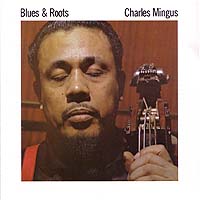
Blues & Roots is an album by Charles Mingus, recorded in 1959 and released on the Atlantic label in 1960. It has been reissued on CD by both Atlantic and Rhino.

"On the Road Again" is a song recorded by the American blues rock group Canned Heat in 1967. A driving blues rock boogie, it was adapted from earlier blues songs and includes mid-1960s psychedelic rock elements. Unlike most of Canned Heat's songs from the period which were sung by Bob Hite, second guitarist and harmonica player Alan Wilson provides the distinctive high pitched vocal, sometimes described as a falsetto.

"Smokestack Lightning" is a blues song recorded by Howlin' Wolf in 1956. It became one of his most popular and influential songs. It is based on earlier blues songs, and numerous artists later interpreted it.

"Stop Breaking Down" or "Stop Breakin' Down Blues" is a Delta blues song recorded by Robert Johnson in 1937. An "upbeat boogie with a strong chorus line", the lyrics are partly based on Johnson's experience with certain women:

Let the Good Times Roll: The Music of Louis Jordan is the thirty seventh studio album by B. B. King, released in 1999. It is a tribute album to jazz saxophonist and singer Louis Jordan, and is made up entirely of covers of songs written or performed by Jordan. The album was released in 1999 on MCA Records.
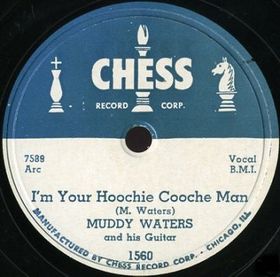
"Hoochie Coochie Man" is a blues standard written by Willie Dixon and first recorded by Muddy Waters in 1954. The song makes reference to hoodoo folk magic elements and makes novel use of a stop-time musical arrangement. It became one of Waters' most popular and identifiable songs and helped secure Dixon's role as Chess Records' chief songwriter.
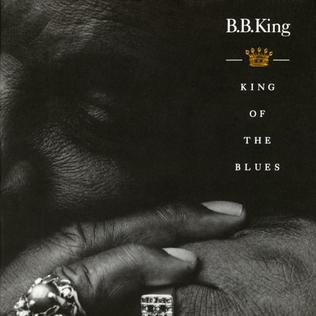
King of the Blues is a compilation album by American blues musician B. B. King covering the years 1949 through 1991. Released by MCA Records in 1992, the four CD box set includes some of King's most popular songs as well as some newer recordings.

"Who Do You Love?" is a song written by American rock and roll pioneer Bo Diddley. Recorded in 1956, it is one of his most popular and enduring works. The song represents one of Bo Diddley's strongest lyrical efforts and uses a combination of hoodoo-type imagery and boasting. It is an upbeat rocker, but the original did not use the signature Bo Diddley beat rhythm.

Take It Home is a studio album by the American musician B.B. King, released in 1979.

Let's Roll is the twenty-sixth studio album by Etta James. It won a Grammy Award for Best Contemporary Blues Album in 2003, and also won a W. C. Handy Award as the Soul/Blues Album of the Year from the Blues Foundation in 2004.
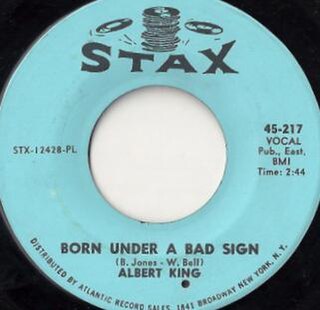
"Born Under a Bad Sign" is a blues song recorded by American blues singer and guitarist Albert King in 1967. Called "a timeless staple of the blues", the song also had strong crossover appeal to the rock audience with its synchronous bass and guitar lines and topical astrology reference. "Born Under a Bad Sign" appeared on the R&B chart and became a blues standard.
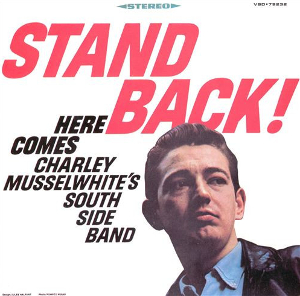
Stand Back! Here Comes Charley Musselwhite's South Side Band is the 1967 debut album of American blues-harp musician Charlie Musselwhite, leading Charlie Musselwhite's Southside Band. The Vanguard Records release brought Musselwhite to notability among blues musicians and also helped bridge the gap between blues and rock and roll, musically and in marketing. With rough vocals and notable performances on harmonica, guitar and bass guitar, the album was critically well received. It introduced Musselwhite's signature song, his cover of Duke Pearson's "Cristo Redemptor".

"Bon Ton Roula" is a zydeco-influenced blues song first recorded by Clarence Garlow in 1949. The following year, it became a hit, reaching number seven in Billboard magazine's Rhythm & Blues chart and introduced the style to a national audience.

Trouble in Mind is a studio album by American jazz saxophonist Archie Shepp and pianist Horace Parlan, featuring performances recorded in 1980 and released on the Danish-based SteepleChase label. The album consists mainly of early and traditional blues and follows up to their 1977 album of duets on spirituals Goin' Home.
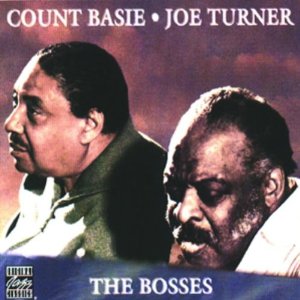
The Bosses is a 1973 album by American blues shouter "Big Joe" Turner accompanied by a small group led by Count Basie, recorded in 1973 and released on the Pablo label.
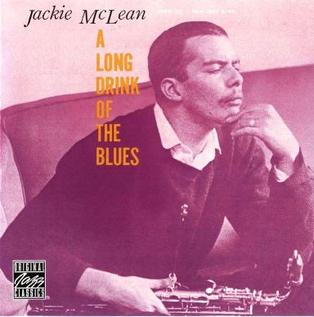
A Long Drink of the Blues is a studio album by saxophonist Jackie McLean. It was recorded in 1957, and released in 1961 on New Jazz Records as NJ 8253. It features two tracks with McLean in a sextet featuring trumpeter Webster Young, trombonist Curtis Fuller, bassist Paul Chambers and drummer Louis Hayes, and three with a quartet featuring pianist Mal Waldron, bassist Art Phipps and drummer Art Taylor.




















